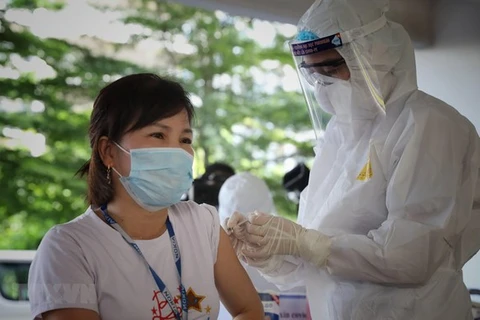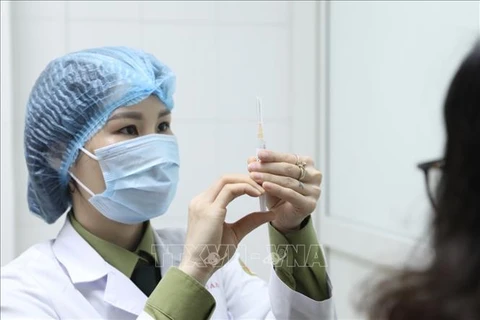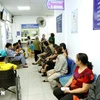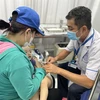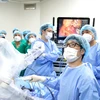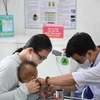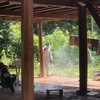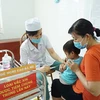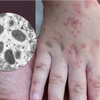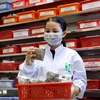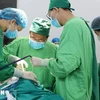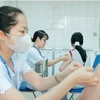The notice, signed by Deputy Health Minister Nguyen Truong Son on June 5, provided new instructions on medical quarantine for children under 15 years old in the northern province, which has been Vietnam’s COVID-19 hotspot since early May.
The move aims to guarantee a safe and convenient living environment for children during the quarantine period, reduce pressure on overloaded concentrated quarantine sites and prevent cross-infections in Bac Giang.
Accordingly, children under 15 years old are required to be quarantined for 21 days. Those under five are allowed to fulfil quarantine orders at home if all preventive requirements against the spread of the coronavirus are met.
Those aged 5-15, meanwhile, must stay at concentrated quarantine sites in 7 days and can complete the rest of their quarantine period at home if they test negative with the virus thrice during the first 7 days.
The number of COVID-19 cases confirmed in the latest wave of outbreaks since April 27 has hit 5,340 as of 12pm June 5, more than half of which were recorded in Bac Giang.
Prime Minister Pham Minh Chinh has emphasised the need to continue implementing COVID-19 prevention and control measures at the highest level. He asked for more efforts to effectively carry out the country’s vaccine strategy and apply information technology in pandemic prevention and control in the context of the fourth outbreak developing in a more complex manner.
The Government leader lauded the efforts of localities hit hard by the pandemic, such as Hanoi, Ho Chi Minh City, Bac Giang, and Bac Ninh, and people working on the frontlines of the fight, like members of the army and public security forces and medical workers.
The Bac Giang fellow-countrymen association in the Czech Republic have donated 10 tonnes of rice to support Bac Giang province to combat the pandemic.
A ceremony to hand over the token of the donations, which have been sent to the Vietnam Fatherland Front (VFF)’s chapters in Viet Yen, Tan Yen, Yen Dung and Hiep Hoa districts, and Bac Giang city, was held in Prague, the Czech Republic, on June 2.
According to President of the association Tran Quang Khai, a fund-raising programme was launched on May 25 among Vietnamese expats, businesses and donors in the Czech Republic, collecting a total of over 160 million VND (nearly 7,000 USD). The amount was used to buy the rice.
Bac Giang authorities have said they will speed up vaccinations, aiming to administer 102,000 doses to workers, as allocated by the Government.
A total of 13 businesses in the province, with 5,133 workers, have resumed their operations under a new model.
A medical robot manufactured by the Military Technology Academy to support COVID-19 prevention and control activities was sent to the current largest pandemic hot spot in Bac Giang province earlier this month.
The robot, called “Vibot,” is the result of a scientific research project conducted by the academy since April 2020.
It has been piloted in Bac Thang Long Hospital and the second facility of Bach Mai Hospital with positive results.
In Bac Giang, Vibot will take the charge of transporting food, medicine, necessities and other stuff from outside to patient rooms, taking trash from the rooms to garbage collection areas, and serving remote conversations between the patients and their family members./.

